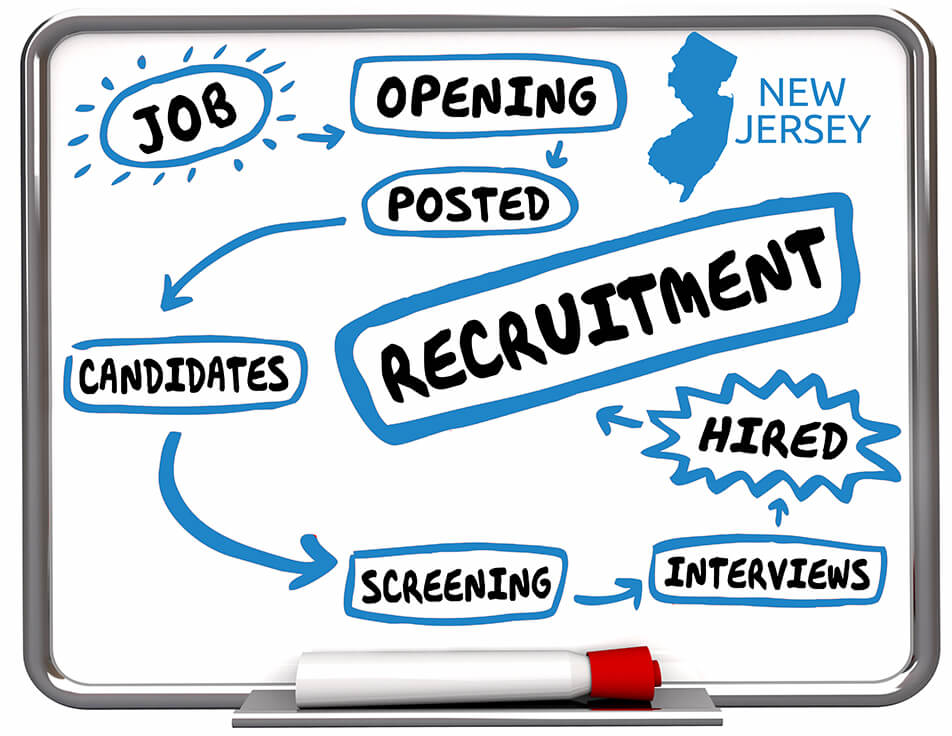
The NJ Jobs Guide
New Jersey (NJ) is a state located in the northeastern United States, known for its diverse economy and a wide range of employment opportunities. The job market in New Jersey is robust, with various industries driving economic growth. These industries include pharmaceuticals, healthcare, technology, finance, manufacturing, tourism, and more.
NJJobMarket.com is a website dedicated to connecting job seekers with employment opportunities specifically within the state of New Jersey. It serves as a job board where individuals can search for jobs in various fields and industries across the state.
How do I find a job in New Jersey?
To find a job in New Jersey, one way is to utilize online job search platforms such as NJJobMarket.com. You can visit the website, create an account, and browse through the available job listings. You can also filter the search results based on location, industry, job type, and other relevant criteria.
Additionally, networking and reaching out to professional contacts, attending job fairs, and leveraging social media platforms like LinkedIn can also be effective in finding job opportunities in New Jersey.
Are there any job board dedicated to jobs in New Jersey?
Yes, NJJobMarket.com is a job board specifically dedicated to jobs in New Jersey. It focuses on providing a platform where employers can post job openings and job seekers can search for opportunities within the state.
What is the highest paying job in New Jersey?
The highest paying jobs in New Jersey can vary depending on the industry and level of expertise. However, some professions that tend to have high earning potential in the state include physicians and surgeons, dentists, chief executives, pharmacists, and financial managers.
What is a full-time job in NJ?
A full-time job in New Jersey typically refers to a position where an employee works for a standard 40-hour workweek, typically Monday through Friday. However, the definition of full-time employment can vary across industries and organizations. Some employers may consider slightly different schedules as full-time, such as 35 or 37.5 hours per week.
What is a comfortable salary in NJ?
The concept of a comfortable salary is subjective and can vary based on an individual’s lifestyle, expenses, and personal preferences. The cost of living in different parts of New Jersey can also affect what is considered a comfortable salary. However, according to the United States Census Bureau, the median household income in New Jersey in 2019 was around $85,751.
What is the richest zip code in New Jersey?
As of NJJobMarket’s data, the richest zip code in New Jersey was 07758, which corresponds to the community of Rumson. However, please note that rankings and demographics may change over time, so it’s advisable to verify the most up-to-date information from reliable sources.
At what age can you start working in NJ?
In New Jersey, the minimum age to start working is generally 14 years old. However, there are restrictions and regulations regarding the types of jobs and the number of hours that individuals under 18 years old can work. It is important to consult the New Jersey Department of Labor and Workforce Development or relevant labor laws for specific details.
How much is the minimum wage in NJ?
The minimum wage in New Jersey is $14.13 per hour for most workers. However, there may be exceptions and different rates for certain industries, such as agricultural and seasonal workers. It’s crucial to refer to the official New Jersey labor laws or the Department of Labor and Workforce Development for the most up-to-date information on minimum wage rates.
Is overtime mandatory in NJ?
Yes, overtime pay is mandatory in New Jersey for eligible employees who work more than 40 hours in a workweek. The overtime rate in New Jersey is typically 1.5 times the employee’s regular hourly wage for each hour worked beyond 40 hours in a week. However, there may be exceptions and variations based on specific industries or job classifications. It is advisable to consult the official labor laws or speak with the New Jersey Department of Labor and Workforce Development for accurate and up-to-date information.
Is NJ a right-to-work state?
No, New Jersey is not a right-to-work state. Right-to-work laws allow employees in unionized workplaces to choose whether or not to join or financially support a labor union. In states with right-to-work laws, employees cannot be compelled to join or pay dues to a union as a condition of employment. However, in New Jersey, unions can require employees to join or financially support the union as a condition of employment.
Are Sundays double time in NJ?
Sundays are not automatically designated as double time under New Jersey labor laws. However, there may be certain industries, collective bargaining agreements, or specific employer policies that provide for additional compensation for work performed on Sundays. It’s important to consult the relevant labor laws, employment contracts, or the New Jersey Department of Labor and Workforce Development for precise information regarding Sunday work pay rates.
